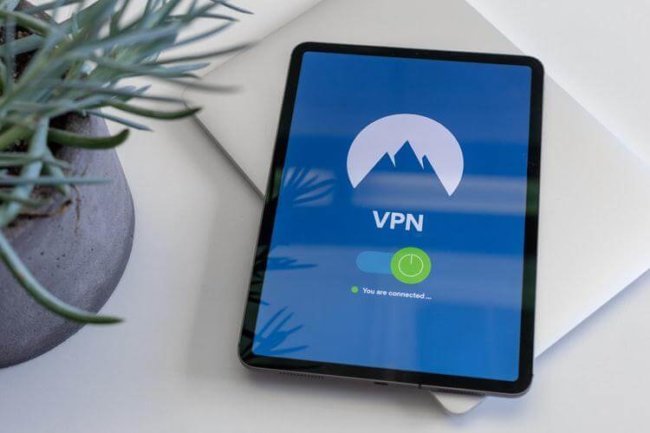Are you concerned about your privacy or how much of your private information is on the Internet and vulnerable to theft or misuse? Well, you are not alone, a recent survey found that 64% of Americans had personally experienced a major data breach.
You may not realize it, but your personal data, including your home address, phone number, and email address is worth a lot of money to both legitimate businesses and fraudsters alike. While the fraudsters want to steal from you, companies want to sell you more products and services or serve you ads that are highly relevant to your demographics and preferences. Online privacy is an important issue and there are steps that can be taken to safeguard your anonymity while blogging and protect your personal and financial information.
Here are 5 ways you can boost your online privacy:
1: Blogging Anonymously
Many people are comfortable with using their real identities while blogging, but others may have reason to be more cautious. If your writing about personal concerns or controversial issues that may make you or your family vulnerable to harassment then there is good reason to use an anonymous blog. In remaining anonymous it is worthwhile to choose a pseudonym carefully, don’t make it too like your real name. When posting to your blog always set passwords on your posts and check for the personal information you may have included in your content; your job, your car or location can be valuable clues to snoopers.
Never blog on unsecured networks or computers, free Wi-Fi in public areas carry with it a host of dangers. Upon purchasing a domain name for your blog, to protect their customers’ privacy many domain name providers offer a service called ‘Whois’ privacy. In charging a small fee, this service displays their contact information instead of yours and any correspondence for you is forwarded on.
2: Limit Personal Information on Social Media
To help protect your privacy online never overshare on social media, providing too much information on Twitter, Facebook or Instagram could allow cybercriminals to obtain your profile details. This allows them to steal your identity or worse access to your financial information. Could an identity thief determine your pet’s favorite name or your mother’s maiden name from a post? Such information is generally used as security questions or passwords on financial accounts. To identify this in advance, you may also want to consider identity theft protection to monitor risks that are making you susceptible to fraud. Be conscious not only of pictures and posts you share but also your privacy settings, thus limiting the number of people who can see what you’re sharing.
Always create strong passwords for your social media accounts to prevent others from logging into your account, use a combination of numbers, special characters, and upper- and lower-case letters. Google chrome extensions are great for bloggers, like ‘LastPass’ which is a password manager that auto-fills passwords for all accounts saved with this extension.
3: Secure your mobile devices

Today we spend more time on our phones than our laptops be it to surf the web for content, answer calls and emails or watch videos. Given this, it’s important to put effort into protecting our mobile devices, always make sure to use a passcode to lock your phone. It may feel like a hassle to add a passcode, but it offers an extra layer of protection if your phone is stolen or lost. Create a complex passcode, never use your birthdate, house number or age, and always use caution when downloading apps or reading emails on your phone.
To function, your phone uses an operating system and such important software requires periodic updates. Never ignore software updates, they can include important protections against the latest viruses, get in the habit of checking for such updates and installing them as soon as possible.
It’s also vital to have a reliable backup of all the data on your device in case of loss, theft or accidental damage. Data can be backed up to your computer or to a cloud-based service, giving you peace of mind all information is safe.
4: Browsing Incognito on your Computer
If you are surfing on your computer for content and you don’t want to save your browsing history, temporary internet files, or cookies, you can avail of privacy protection. All web browsers today allow users to browse in ‘private mode’, so when you search with this mode turned on, others won’t be able to trace your browsing history from your computer. Browsing incognito can also stop search engines from tracking and gathering your search history and selling on this information to advertisers.
It is also imperative to keep your PC virus free and to run antivirus programs regularly; always keep the software on your PC up to date, closing all security holes. If your computer becomes infected by a virus or malware, not only can hackers dig through your data to steal your identity, but they may, in fact, demand a ransom for the safe return of files. In addition, all content, personal files, photos and videos on your PC should be backed up regularly, this can be done on an external USB hard drive or through a cloud-based service.
5: Virtual Private Network

VPNs give you online privacy and anonymity, they are a Virtual Private Network that helps you secure your Internet connection and protect your identity. They use encryption to scramble data when it’s sent over a Wi-Fi network, making it unreadable which prevents anyone on the network from eavesdropping on your Internet activity.
In masking your IP address, all your online actions are virtually untraceable, and your Internet traffic goes to a VPN service where it is encrypted and sent to a random server in a different geographic location. Through using a VPN, it makes it more difficult for cybercriminals to breach your online privacy and access your blogging content or personal information.
VPN protocols can provide stronger security than competitor protocols such as PPTP, while most VPN providers offer a no-log policy, which means they never track or log your online activities. Some providers also offer full, unmetered bandwidth without data limits and VPN software is compatible with any device including laptops, tablets, and mobile phones.


Using incognito works, but it’s not as safe as it sounds. I have to admit, before learning more about this topic, I also used only incognito mode, but later on, I learned that using private browsers and VPNs are way more effective. I started using Tor and Surfshark myself and I do feel a bit safer, although I still have to learn how not to overshare on my social media!